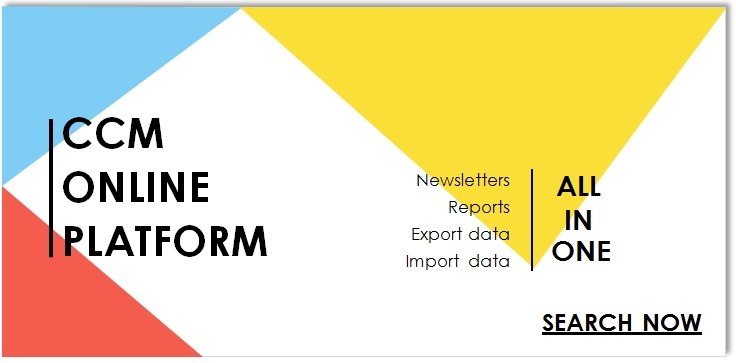National policies pose great influence on the development of pharmaceuticals
industry.
In the past decade, the universalization of healthcare insurance, improvement
in financing and the implementation of critical illness insurance boosted the
overall domestic pharmaceuticals market: the compound growth rate from 2009 to
2014 reached 19%, according to the Institute for Research of Prosperous
Industries (a Chinese institute providing data and information on promising
industries).
In 2015, a number of national policies were carried forward - stricter control
on healthcare costs, hierarchical medical system, multi-site physician
practices, reform on administrative review of medical instruments and precision
medicine project - for more effective and reasonable guidance to the
pharmaceuticals industry.
After the implementation of healthcare costs control, the pharmaceuticals
industry could no longer expand through healthcare insurance and stepped into
the period of transformation, for which the overall growth rate decreased.
In 2016, the growth is predicted to further slow down, affected by the stricter
control on healthcare cost, fall in bidding price of pharmaceuticals and
constraints on the use of adjuvant drugs, antibiotics and large-volume parenteral.
The industrial revenue growth rate in the coming three years is expected to be
10%-11%, according to the South Pharmaceutical Economy Research Institute,
China Food and Drug Administration.
In the next one or two years, domestic pharmaceuticals industry will experience
the following trends:
New GMP Certificate to accelerate M&A between pharmaceutical enterprises
GMP Certificate (Good Manufacturing Practice) has been globally recognized in
the management of pharmaceutical production. Pharmaceutical enterprises were
required to meet the standards of new GMP Certificate by 31 Dec., 2015, or they
will have to suspend production. This has been the "strictest GMP"
ever.
So far, the huge number of pharmaceutical enterprises has led to decentralized
production, uneven product quality, excess capacity and severe homogenization
of drugs. Thus, measures are needed to strengthen supervision, improve
production standards and upgrade product quality. In this process, the small-
and medium-sized producers will be knocked out. In the long term, it will be
beneficial to further industrial development.
Notably, pharmaceutical enterprises are speeding up M&A. Under profit
pressure, some enterprises with production approvals for profitable drugs can’t
meet the requirements of new GMP Certificate. Thus, they will be acquired by
large-scale producers that have already obtained the new GMP Certificate, which
will be favorable for the industrial integration.
Want to know more about CCM's food and feed market products? Click here and download our sample!
More inferior generic drugs to be knocked out of the market
Generic drugs refer to the drugs comparable to brand-name ones in active
ingredients, type of formulations, dosage form and intended use.
Most drugs available in China are generic ones. So far, they can basically meet
the needs of the public. Yet, there are also problems in current market, like
uneven quality, relatively low generic standards and imprecise efficacy.
Thus, in Feb. 2016, the State Council issued the Opinions on Quality
Consistency Evaluation for Generic Drugs to guarantee the safety and efficacy
of generic drugs and regulate the overall pharmaceuticals industry.
Accordingly, generic drugs already with sales approvals are required to be
clinically consistent with and substitutable for brand-name drugs in quality
and efficacy.
Thanks to this policy, quality of generic drugs will get improved and more
inferior generic drugs will be knocked out of the market.
Besides, more Chinese pharmaceutical producers choose to cooperate with foreign
enterprises. In doing so, they can seize the opportunity to develop first-time
generic drugs and improve their strategic business layout.
Traditional Chinese medicines to be promising
In Oct. 2015, Chinese Scientist Tu Youyou was awarded the Nobel Prize for
medicine, for her work in creating an anti-malaria medicine (artemisinin) from
sweet wormwood.
This offered a great chance for traditional Chinese medicine (TCM). In the
coming future, there may be increasing number of clinics focusing on TCM to
appear, which will be beneficial to the development of TCM industry.
In the intense industrial competition, there are two ways out for Chinese
pharmaceutical producers:
-
Upgrading technology to reduce costs
-
Developing new high value-added products
Thanks to the national supporting policies and reform, domestic pharmaceuticals
market has been in an upturn, which is also favorable for technology
innovation.
On the whole, despite the heavy pressure, Chinese pharmaceutical enterprises
are developing rapidly. Many enterprises, like the ones devoted to developing
drugs for tumor, diabetes, cardiovascular disease, orthopaedics and
hepatopathy, are expected to enjoy promising market prospect.
This article comes from Vitamins China E-News 1604, CCM

About CCM:
CCM is the leading market intelligence provider for China’s
agriculture, chemicals, food & ingredients and life science markets. Founded in 2001, CCM offers a
range of data and content solutions, from price and trade data to industry
newsletters and customized market research reports. Our clients include Monsanto,
DuPont, Shell, Bayer, and Syngenta. CCM is a brand of Kcomber Inc.
For more
information about CCM, please visit www.cnchemicals.com or get in touch with us directly by emailing econtact@cnchemicals.com or calling +86-20-37616606.
Tag: pharmaceuticals